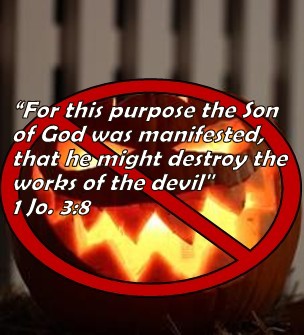
When studying any Christian doctrine, our only basis is the Bible. The Word alone contains the source of our faith, the whole will of God for man. We are responsible to put into practical application all the doctrines we find in the Word of God. Therefore this booklet draws each thought from clear Scriptural teachings. Our goal is not to support our own beliefs and practices, but to support, believe, and practice all we find in the Word of God!
Some quotes by men of faith before us are included. Although we do not base our doctrine on them, it shows how Christians in the first few centuries after Christ understood the Scriptures, that people are confused about today.
Following are the sources used and are recommended reading:
The day most Christians meet for worship is Sunday. There are some groups, however, who hold their weekly meetings on Saturday. Their reason is that Saturday is “the seventh day”, or the Sabbath, on which God commanded to rest. Sometimes, then, the question is raised whether the calendars may have changed through the centuries, making “the seventh day”, our first day. Those who worship on Saturday, however, maintain that it was the Catholic church that changed the day of worship. Is it possible to know with any certainty what is the truth, and what is God’s will for us on this subject? Let’s do a short study on it.
May God bless you with the direction of the Holy Spirit as you read this!
The first mention of the Sabbath, or of man keeping the seventh day special is found in Exodus 16:4-5. Here God tells Moses what he is about to do.
“Then the Lord said unto Moses, Behold, I will rain bread from heaven for you; and the people shall go out and gather a certain rate every day, that I may prove them whether they will walk in my law, or no. And it shall come to pass, that on the sixth day they shall prepare that which they bring in; and it shall be twice as much as they gather daily.” (Emphasis added).
We can see here that God is planning a preliminary test for the children of Israel, to “prove them”, whether they will be obedient to His commandment. As we go further on in the chapter, we can see how this was accomplished;
“And it came to pass, that on the sixth day they gathered twice as much bread, two omers for one man: and all the rulers of the congregation came and told Moses. And he said unto them, This is that which the Lord hath said, To morrow is the rest of the holy sabbath unto the Lord: bake that which ye will bake to day, and seethe that which ye will seethe; and that which remaineth over lay up for you to be kept until the morning. And they laid it up till the morning, as Moses bade: and it did not stink, neither was there any worm therein. And Moses said, Eat that to day: for to day is a sabbath unto the Lord: to day ye shall not find it in the field. Six days ye shall gather it: but on the seventh day, which is the sabbath, in it there shall be none. [Emphasis added].
And it came to pass, that there went out some of the people on the seventh day for to gather, and they found none. And the Lord said unto Moses, How long refuse ye to keep my commandments and my laws? See, for that the Lord hath given you the sabbath, therefore he giveth you on the sixth day the bread of two days; abide ye every man in his place, let no man go out of his place on the seventh day. So the people rested on the seventh day.” (verses 22-30). [Emphasis added].
This was an introduction to the Sabbath day. A few chapters later, in Exodus 20:8-11, God gave the complete Sabbath commandment in the ten commandments;
“Remember the Sabbath day, to keep it holy. Six days shalt thou labour, and do all thy work: But the seventh day is the sabbath of the Lord thy God: in it thou shalt not do any work, thou, nor thy son, nor thy daughter, thy manservant, nor thy maidservant, nor thy cattle, nor the stranger that is within thy gates: For in six days the Lord made heaven and earth, the sea, and all that in them is, and rested the seventh day: wherefore the Lord blessed the sabbath day, and hallowed it.”
Notice how the Sabbath is tied into the seventh day of creation with the word “wherefore”. The meaning of wherefore, (or therefore) is “because of that”. So God is saying that He rested on the seventh day, and because of that He also chose the seventh day for the Jews to rest.
Throughout the following books of the Old Testament there are many references to the Sabbath. When we come to the New Testament, we again see references to the Sabbath in the Gospels, many of them show Jesus “breaking” the Sabbath according to the Jewish ideas. In the Epistles, (which were written after the New Testament was in force) however, we see the Law, (including the Sabbath), referred to as having been fulfilled in Christ, and no more in effect. (See Rom. 6:14, 7:4-6, 8:2, Gal. 3:23, 4:21, 5:18).
Yes. Put very simply God is telling us that the Sabbath was given through Moses to be a sign between God and the children of Israel. The Word of God tells us clearly several places when, why, and to whom the Sabbath commandment was given. Each instance is clear, and there are no verses that could even seem to imply anything different. Here are a few;
“Speak thou also unto the Children of Israel, saying, Verily my sabbaths ye shall keep: for it is a sign between me and you throughout your generations;” (Ex. 31:13). [Emphasis added].
“Wherefore the children of Israel shall keep the sabbath, to observe the sabbath throughout their generations, for a perpetual covenant. It is a sign between me and the children of Israel for ever: for in six days the Lord made heaven and earth, and on the seventh day he rested and was refreshed.” (Ex. 31:16-17). [Emphasis added].
“And remember that thou wast a servant in the land of Egypt, and that the Lord thy God brought thee out thence through a mighty hand and a stretched out arm: therefore the Lord thy God commanded thee to keep the sabbath day.” Deut. 5:15. [Emphasis added].
“Thou camest down also upon mount Sinai, and spakest with them from heaven, and gavest them right judgments, and true laws, good statutes and commandments: And madest known unto them thy holy sabbath, and commandest them precepts, statutes, and laws, by the hand of Moses thy servant:” (Neh. 9:13- 14). [Emphasis added].
“Wherefore I caused them to go forth out of the land of Egypt, and brought them into the wilderness. And I gave them my statutes, and showed them my judgments, which if a man do, he shall even live in them. Moreover I also gave them my sabbaths, to be a sign between me and them, that they might know that I am the Lord that sanctify them”. (Eze. 20:10-12). [Emphasis added].
In studying Christian history, we find that all of the Christians from apostolic times through the third century A.D. who wrote on the subject believed that the Sabbath commandment was first given to the Jews by Moses as a sign between them and God.
A few are quoted here:
Irenaeus [A.D. 120-202] wrote; “And that man is not justified by these things, but that they were given as a sign to the people, this fact shows, – that Abraham himself, without circumcision and without observance of Sabbaths, ‘believed God and it was imputed unto him for righteousness; and he was called the friend of God’… Moreover, all the rest of the multitude of those righteous men who lived before Abraham, and of those patriarchs who preceded Moses, were justified independently of the things above mentioned…...” – (ANF V. 1 P. 481).
Justin Martyr [A.D. 110S165] wrote; “As then circumcision began with Abraham, and the Sabbath and sacrifices and offerings and feasts with Moses, and it has been proved they were enjoined by the hardness of your people’s heart”, – Dialog with Trypho (ANF V.1 P.216).
Tertullian [A.D. 145-220] wrote; “Therefore, since God originated Adam uncircumcised and inobservant of the Sabbath, consequently his offspring also, Abel, offering Him sacrifices, uncircumcised and inobservant of the Sabbath was by Him commended… Noah also…. inobservant of the Sabbath- God freed from the deluge. etc. But Abraham, (you say) was circumcised. Yes, but he pleased God before his circumcision; nor did he observe the Sabbath”.
“But the Jews are sure to say, that ever since this precept was given through Moses, the observance has been binding. Manifest accordingly it is, that the precept was not eternal nor spiritual, but temporary, which would one day cease.” – An Answer To The Jews, (ANF V.3 P.153, 155).
And one day it did cease. The Jewish dispensation came to an end by Christ’s death on the cross, tearing open the veil into the most holy place (Mark 15:38), bringing the Christian dispensation – the New Testament S into effect (Heb. 9:7-17). The apostle Paul explains: “But now we are delivered from the law, that being dead wherein we were held; that we should serve in newness of spirit, and not [in] the oldness of the letter.” (Rom. 7:6) The law was given to the Jews as a nation, it was given for memorials, for types and shadows, and to keep human nature in check (Gal. 3:24-25). But the law had a weakness, because what the law prohibited, human nature all the more desired (Rom. 7:8-10). Jesus came into the world to save us from sin, the desire of which was fed by the law. By His death He instituted the New Testament, which replaced the Old Testament with its laws (Heb. 9:15-18), and He gave the Holy Spirit to those who believe in Him and totally accept Him and His teachings. Where the law was to keep human nature in check, but also aroused a desire for sin, the Holy Spirit now conquers the human nature in the submitted Christian. The law with its observance of types and shadows is no more relevant – because we are now in the time foreshadowed by them. “Wherefore the law was our schoolmaster [to bring us] unto Christ, that we might be justified by faith. But after that faith is come, we are no longer under a schoolmaster” (Gal. 3:24-25).
The apostle Paul admonishes the Christians to, “Let no man therefore judge you in meat, or in drink, or in respect of an holyday, or of the new moon, or of the sabbath days: Which are a shadow of things to come; but the body is of Christ.” (Col. 2:16- 17).
Tertullian, remarking on these verses says, (after quoting them), “We do not now treat of the law, further than (to remark) that the apostle here teaches clearly how it has been abolished, even by passing from shadow to substance- that is, from figurative types to reality, which is Christ. The shadow, therefore is His to whom belongs the body also; in other words, the law is His, and so is Christ.” (ANF. V.3 P.471).
There is no mention in the Bible of Christians keeping the seventh day Sabbath after the giving of the Holy Spirit and acceptance of the Gentiles. There is not even any mention of any Christian meeting on the Sabbath day. There is reference to the apostles preaching to those assembled on the Sabbath, as that was when the Jews assembled (along with some Gentiles), but there is no mention of any Christian meetings on the Sabbath.
Instead, they met regularly on the “Lord’s Day”, the “first day of the week”, in memory of Christ’s resurrection, as clearly seen in various Scriptures. For example: “And upon the first day of the week, when the disciples came together to break bread, Paul preached unto them.” Acts 20:7. The word “when” clearly implies it was expected and a usual occurrence.
Christians have kept Sunday as their day of worship continuously from that time until the present. History is perfectly clear on that point. All of the existing Christian writings of the first three centuries show that Christians in those days did not keep the seventh day Sabbath, but did meet for worship on Sunday.
As previously quoted, the apostle Paul admonished the Colossian church to: “Let no man therefore judge you in meat, or in drink, or in respect of an holyday, or of the new moon, or of the sabbath days: Which are a shadow of things to come; but the body is of Christ.” (Col. 2:16-17). [Emphasis added].
Hebrews 4:1-11 seems to refer to the Sabbath foreshadowing two kinds of rest:
The early post-apostolic Christians mentioned three reasons why God gave the Sabbath:
These early Christians didn’t connect Sunday with the Sabbath, as later Christians have done. To them it was an entirely different thing, the Lord’s day. They explained that Christians keep a “perpetual sabbath” by their daily lives, which is the fulfilment of the Jewish Sabbath. Here are a few of their quotes:
“But the Sabbaths taught that we should continue day by day in God’s service. `For we have been counted’, says the apostle Paul, ‘all day long as sheep for the slaughter;’ that is, consecrated [to God], and ministering continually to our faith, and persevering in it, and abstaining from all avarice, and not acquiring or possession treasures upon earth.” [Emphasis added]. Irenaeus (ANF V.1 P.481). (A dictionary defines “avarice” as; excessive or insatiable desire for wealth or gain).
Justin Martyr, in his “Dialog With Trypho” (a Jew), wrote: “The new law requires you to keep a perpetual sabbath. and you, because you are idle for one day, suppose you are pious, not discerning why this has been commanded you: and if you eat unleaven bread, you say the will of God has been fulfilled. The Lord our God does not take pleasure in such observances: if there is any perjured person or a thief among you, let him cease to be so; if an adulterer, let him repent; then he has kept the sweet and true Sabbaths of God.” (ANF V.1 P.200). [Emphasis added].
Clement a presbyter of Alexandria, [A.D. 153-217], commenting on the fourth commandment wrote: “By following Him, therefore, through our whole life, we become impassible; and this is to rest.” (ANF V.2 P.512).
“We (Christians) understand that we still more ought to observe a sabbath from all `servile work’ always and not only on every seventh day, but through all time. And through this arises the question for us, what sabbath God willed us to keep? For the Scriptures point to a sabbath eternal and a sabbath temporal. For Isaiah the prophet says, ‘your Sabbaths my soul hateth;’ and in another place he says, ‘My Sabbaths you have profaned’.” Tertullian – An Answer to The Jews (ANF V.3 P.155). [Emphasis added].
In the fourth century as the Roman government itself became “Christian” and the Catholic church was slipping into apostasy, a few things happened that affect the way Christians see the Sabbath and Sunday even today.
It is from these times that the Seventh Day Adventists find their “early Christian” quotes in support of Sabbath-keeping. It needs to be remembered that the Catholic church was far from the faith by this time.
The Waldensians in general, did not accept the Catholic church’s Judaizing in this matter, and because they didn’t keep the Sabbath they were branded by the Catholics with names like “Insabathi” and “Insabbathas”, that is, “Sabbathless, or not observing Sabbaths.” (Martyrs Mirror P.277).
In AD 1194 Alphonus, King of Aragon, published a “bloody degree” against the “Waldenses or Insabbathi, (that is those who do not observe the Sabbaths or holy – days of the Roman church)” saying that they should be “rejected, condemned, and persecuted, from the face of God and all Catholics.” (Martyrs Mirror P.298).
During the reformation, the state church accused the Anabaptists of not keeping the Sabbath. Menno Simons replied to one who accused them of this in much the same way the early church did to the Jews.
The accusation; “Nor is it a desirable fruit, but shameful disgrace that they, contrary to the example of Christ, and the apostle, constitute themselves a church, desecrate the Lord’s Sabbath, leave the open assembly and service…”
Simons’ answer; “They keep and sanctify the Sabbath which is not the literal, but the spiritual Sabbath, which never ends with true Christians, not by wearing fine clothes, not by carousing, vanity and idleness, as the reckless world do, but by the true fear of God, by a clear conscience and unblamable life, in love to God and their neighbors; for that is the true religion, Heb. 12:1, and in the fear of God they do not attend the public Sabbath and holiday gatherings” (The Complete works Menno Simons, Part 2, P.37,38). [Emphasis added].
Simon’s answer shows the Anabaptist belief on the relationship between the Old and New Testaments S that the Old is fulfilled in the New. However, in the early days of Anabaptism there was a small movement led by Oswald Glait and Andreas Fischer, that were otherwise in agreement with the Anabaptists but believed that the Sabbath was to be kept literally by Christians. (See “The Mennonite Encyclopedia” V.2 P.522,523; V.4 P.396)
It is important that we remember that Jesus did not come to destroy the law, but to fulfil it. (Mat. 5:17-18). In the true Christian life we do not make void the law, we establish it. (Rom. 3:31). Because the Jewish law of types and shadows is no more literally binding does not mean that they were for no reason. When Colossians 2:16-17 says that the Sabbath is a shadow of what would follow, we can see that God expects something in the fulfilment of it. As the apostle Paul wrote, through faith “we establish the law” (Rom. 3:31). Also see Matthew 5:17. We are expected to establish through faith in Jesus Christ the shadows that are fulfilled in Him. This includes the perpetual Christian sabbath of service to God. As Christians we have given up our own works, for pleasure and material treasure, for perpetual service to God, not just one day a week.
We have found that the Sabbath is fulfilled in the daily lives of the Christians in this dispensation, and that Christians are to let no man “judge them” in respect to its literal Jewish observance. It was not transferred to another day, it was a shadow that is fulfilled (Col. 2:16-17). Where then does the Lord’s Day come in? Let’s go back to the Bible again and see what we can find.
Following are a few interesting facts:
Let’s look at what the church of the first few centuries A.D. did with the above facts. We will notice what day they gathered, and why they gathered on that day.
“And on the day called Sunday, all who live in the cities or in the country gather together to one place, and the memoirs of the apostles or the writings of the prophets are read, as long as time permits; then when the reader has ceased, the president verbally instructs, and exhorts to the imitation of these good things… But Sunday is the day on which we all hold our common assembly, because it is the first day on which God, having wrought a change in the darkness and matter, made the world; and Jesus Christ our Savior on the same day arose from the dead.” (First Apology of Justin Martyr, Chap. 67, Weekly worship of the Christians. ANF V.1 P. 185, 186).
“But every Lord’s day do you gather yourselves together, and break bread, and give thanksgiving after having confessed your transgressions, that your sacrifice may be pure.” (The Teaching of the Twelve Apostles (written between 110 and 165 A.D.) Chap. 14, Christian Assembly on the Lord’s Day. ANV.7 P.381) [Emphasis added].
Today, we Christians still hold our common assembly to commemorate Christ’s resurrection on “the day called Sunday”, following the unbroken example of the apostles as recorded in Scripture and of the churches they established. Our reason for meeting is still to study His Word, and hear instruction and exhortation to “imitate these good things.”
Obviously working all day or going to an amusement park or some other form of worldly entertainment that would draw our minds away from Christ would be a poor way to commemorate His resurrection. Rather, if we are spiritually alive, after attending a worship service we will desire to occupy ourselves with something upbuilding. For instance, witnessing for God in one of many ways, visiting someone who is sick or discouraged, widows, orphans, or older people, spending time with the family, studying some subject of interest in the Bible that some are wondering about, reading upbuilding literature, etc. It has been said that what we do in our leisure time tells where our heart is. The Lord’s Day should not be devoted to monetary pursuits nor to idleness and worldly pleasure, but to the Lord.
In summary, we can on the Lord’s Day as well as the rest of the week fulfil the Christian (perpetual) Sabbath of service to God, “Not doing thine own ways, nor finding thine own pleasure, nor speaking thine own words:” (Isa. 58:13). Let us not lose sight of the fact that if the weekly Sabbath was only a shadow of what would follow (Col. 2:16, 17), God expects much more in the fulfillment of it.
As Christians, let us invite Jesus to fulfil the “shadows” of His old covenant in us through the glorious “ministration of righteousness” [II Cor. 3:9], through His death, taking away the veil that covered it for the Jews. And, “with open face beholding as in a glass the glory of the Lord”, being “changed into the same image from glory to glory, even as by the spirit of the Lord” (II Cor. 3:18).
Special mention of appreciation must be expressed for Verna Martin who spent time to proof read and correct the punctuation which helped to make the booklet more readable.







